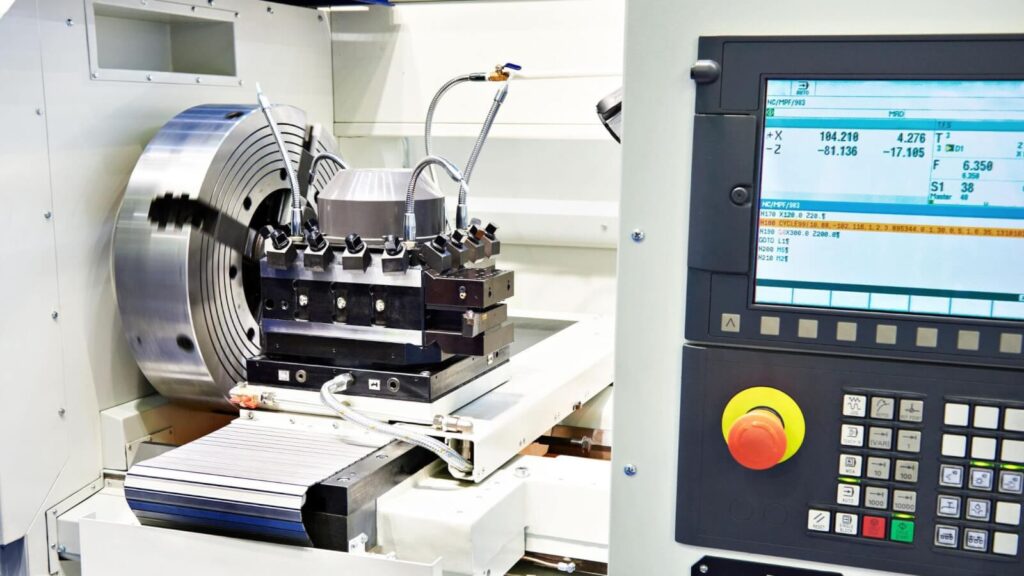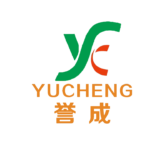When choosing the right lathe machine for your factory or business, understanding the difference between NC lathes (Numerical Control) and CNC lathes (Computer Numerical Control) is critical. Both machines are used for turning operations, but they vary greatly in terms of technology, automation, precision, and long-term value.
In this article, we provide a comprehensive, in-depth comparison between NC and CNC lathes, helping buyers make smarter investment decisions based on their specific production needs.

⚙️ 1. Fundamental Control System Differences
NC Lathe (Numerical Control):
- Uses punched tape or basic numerical codes input manually.
- Follows a sequential instruction path; each operation is limited by physical program cards or code tapes.
- Cannot easily store or modify programs—reprogramming requires physical replacement.
- No real-time feedback or adaptive control.
CNC Lathe (Computer Numerical Control):
- Powered by a computer processor that reads G-code or CAD/CAM-generated tool paths.
- Allows dynamic and continuous multi-axis control, toolpath optimization, and on-the-fly program changes.
- Stores multiple part programs; supports automatic program recall and modification.
- Provides real-time diagnostics, compensation, and simulation.
✅ Summary: CNC lathes offer superior flexibility, programmability, and intelligence. NC lathes are more basic but easier to operate for simple tasks.
🎯 2. Precision, Repeatability, and Capabilities
| Feature | NC Lathe | CNC Lathe |
|---|---|---|
| Control Accuracy | Moderate (±0.05mm typical) | High (±0.005mm or better) |
| Repeatability | Limited | Excellent |
| Tool Path Complexity | Straight-line interpolation only | Supports complex contours & surfaces |
| Multi-Axis Capability | Typically 2-axis | Up to 3, 4, or even 5-axis |
| Surface Finish Quality | Lower (depends on manual skill) | High-quality, consistent finishes |
✅ Verdict: If you need tight tolerances and consistent results, CNC lathes are the better choice.
🧠 3. Automation Level and Workflow Efficiency
NC Lathe:
- Requires manual tool changes and frequent human supervision.
- Typically semi-automatic, meaning operator intervention is needed between steps.
- Suitable for small-scale production or workshops.
CNC Lathe:
- Supports fully automatic machining cycles, including auto tool change, auto chucking, and even robotic loading.
- Ideal for lights-out manufacturing, with minimal operator input.
- Offers integration with MES/ERP systems, Industry 4.0 compatibility.
✅ Conclusion: CNC lathes significantly reduce labor cost and improve efficiency in high-demand production lines.
💸 4. Cost Consideration: Investment vs Return
| Factor | NC Lathe | CNC Lathe |
|---|---|---|
| Initial Machine Cost | Lower | Higher |
| Operator Skill Requirement | Moderate | Higher (needs trained personnel) |
| Maintenance Complexity | Simple | More complex electronics involved |
| Production Speed | Slower | Faster cycle time |
| Return on Investment (ROI) | Longer payback period | Fast ROI in high-volume settings |
✅ Recommendation: NC lathes are suitable for budget-conscious buyers. CNC lathes offer better long-term value through labor savings and quality assurance.
🏗️ 5. Which One Should You Choose?
Choose NC Lathe if:
- Your parts are simple in shape, like bushings, spacers, or pins.
- You operate in regions with lower labor costs.
- Your production volume is low to medium, and price sensitivity is high.
- You prefer easy maintenance and operation.
Choose CNC Lathe if:
- You need to machine complex, high-precision components.
- Your goal is automated, scalable, high-speed production.
- You serve industries like automotive, aerospace, medical, or electronics.
- You want better process control, less scrap, and faster lead times.
🔧 6. How Yucheng Supports Your Lathe Projects
At Yucheng, we offer a full range of precision NC lathes and advanced CNC turning centers to suit various customer profiles.
Our offerings include:
- Economical NC lathes with durable cast iron structure and simplified controls.
- CNC turning centers with multi-axis configuration, hydraulic chuck, and servo tool turret.
- Customizable solutions with optional parts like bar feeders, live tooling, or Siemens/Fanuc/Mitsubishi controllers.
- OEM/ODM support and full export documentation service.
We help small shops and large factories alike modernize their machining capabilities while staying cost-efficient.

